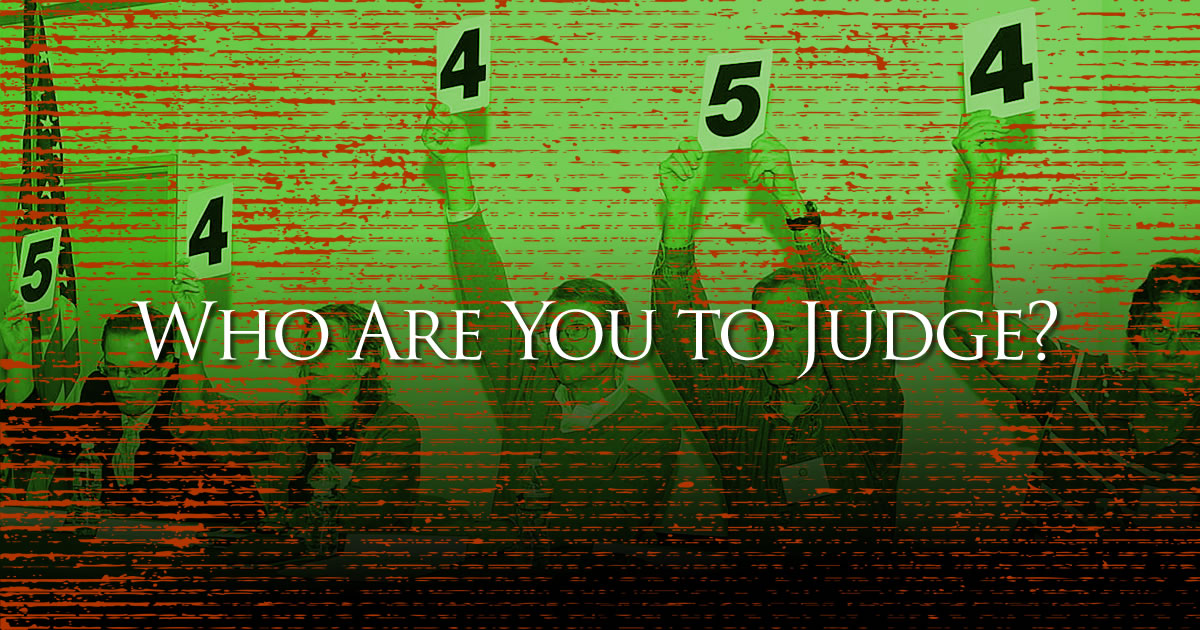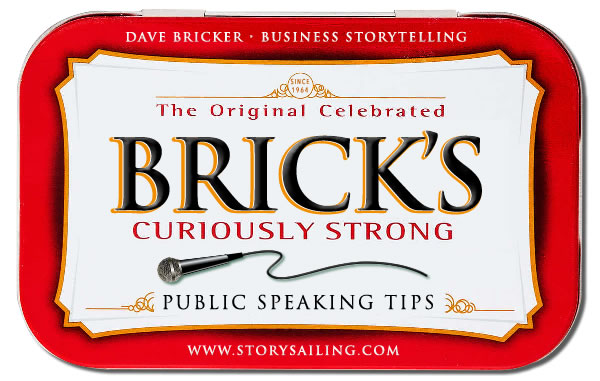Who Are You to Judge?

Have you ever been disappointed with a judge’s call—in a courtroom, on a ball field, or in a contest? Who are you to judge?
In August of 2020, I watched eight finalists compete in the World Championship of Public Speaking, an annual event hosted by Toastmasters International. These were the top eight of 30,000 contestants worldwide. As expected most were excellent speakers, but a few were—in my opinion—no better than “pretty good.” When the three winners were announced, I was dumbfounded. Only one of the speakers who had impressed me with their timing, dynamics, camera work, and message was among the three winners. One of my favorites had been mentored by two former World Champions who are renowned as coaches. That contestant didn’t even place! Don’t those judges know anything about speaking? How could this contest have gone so wrong?
One of my own coaching clients had lost in the previous round. He would have been a strong contender. Why didn’t he make it to the finals? How could this contest have gone so wrong?
 As a presentation coach, it’s my job to be opinionated as hell about what makes a speech powerful or funny or inspiring. It’s my job to recognize clichés, storytelling mistakes, and technical problems. I work with speakers to make sure every line—every paragraph—every facial expression—every pause—every hand gesture—adds meaning and value to a powerful message. How could this contest have gone so wrong?
As a presentation coach, it’s my job to be opinionated as hell about what makes a speech powerful or funny or inspiring. It’s my job to recognize clichés, storytelling mistakes, and technical problems. I work with speakers to make sure every line—every paragraph—every facial expression—every pause—every hand gesture—adds meaning and value to a powerful message. How could this contest have gone so wrong?
I’d seen this happen before. Earlier that same year, I’d competed and advanced to win the District Championship in the Speech Evaluation Contest … but I lost to poo-poo jokes in the final round of the Humorous Speech contest. I didn’t even place! Some of my friends in District Leadership texted me immediately to tell me they thought I was a clear winner, but the judges had ruled and that was final. How could this contest have gone so wrong?
Shouldn’t the judges all be top speakers and coaches? I imagined my ideal judging panel, with Darren LaCroix and Mark Brown, Patricia Fripp, Rosemary Ravinal, Kelly Swanson, and Suzannah Baum. And great entertainers who really understand stagecraft—like Bill Stainton, Brian Walter, and Jason Hewlett.
And then it struck me: Whatever my skills and responsibilities as a coach may be, a speaker’s job is to deliver a message to an audience that knows nothing about public speaking. They’re not evaluating your stagecraft. They’re not commenting on your last artful pause. They’re not marveling at how you came up close to the camera to deliver your “wise conclusion” at the end of your story. Their tastes in humor and the messages that reach them are governed by generational trends, cultural norms, and personal style. For all your virtuosity, it may be that someone less polished—someone with weaker technique—someone with a story you’ve heard a hundred times before from a hundred presenters—is the one who will capture the heart of the audience.
The jury in a courtroom isn’t made up of legal scholars; the verdict is decided by a group of “regular people” who vote with their hearts. Who are you to judge?
The referees in your daughter’s volleyball game didn’t go to referee school; they know the rules and they “call it as they see it,” even if you have a “better view” from the bleachers. Who are you to judge?
As a speaker, you polish your stagecraft in the hopes that timing and technique and dynamics will help you reach the audience. But you might not connect with everyone in the room. You could finish your best show ever and observe, when the house lights come up, that everyone is looking at their cellphones. You may dazzle the audience but not the CEO who hired you. That woman who sat in the front row with a scowl on her face throughout your performance might come up to you when you’ve finished and tell you with tears in her eyes that your message changed her life.
Everyone you present to—whether you’re on a stage, in a business meeting, asking your boss for a promotion, or trying to impress a date—is a judge. They may not understand you. They may not know how to give an informed evaluation. They may base their decisions on criteria you think are ignorant or asinine. But in the contests of life and business, these are the judges.
I’ve been thinking about that World Championship of Public Speaking. The winners weren’t the contestants I would have chosen … but I wasn’t the judge! Whoever the judges were and whatever they knew or didn’t know about public speaking, they were the audience and they voted with their minds and hearts. Perhaps that’s why that contest is called the “World Championship.” Winning the final round isn’t about impressing the world’s most polished speakers; it’s about impressing the judges, whomever they are and whatever they know. That’s one tough contest and that’s why the winners get the trophies!
Who are you to judge? Maybe the best person of all.



dave, well stated and clearly spoken. also a posiiive example of submitting to those who are the judges even if you would have have judged differently. good behavior on your part. not often enough seen.
best, ricki
PS david, please visit my new website and enjoy the poetry there
as well as the recently posted blogs. i always value your opinion.
Will do. Thanks, Ricki!
Dave, I am a horrible public speaker. I get nervous and shaky, and really don’t like it! A few years ago, my minister, Andrea Ayvazean asked me to read my “I Am From” writing in front of the entire congregation. I did it-very poorly-I thought, and yet, I was applauded loudly and long. Other people read over the next few weeks, and theirs were better written and much better delivered than mine, with less applause. Maybe, they felt sorry for me…But, it’s easy to judge when you are not the Judge. I’m sure the people who didn’t win should have, but prediction is difficult!
Some audiences will applaud just because you got up and presented, especially if you’re not a seasoned speaker. Most of them are too terrified to do that themselves.